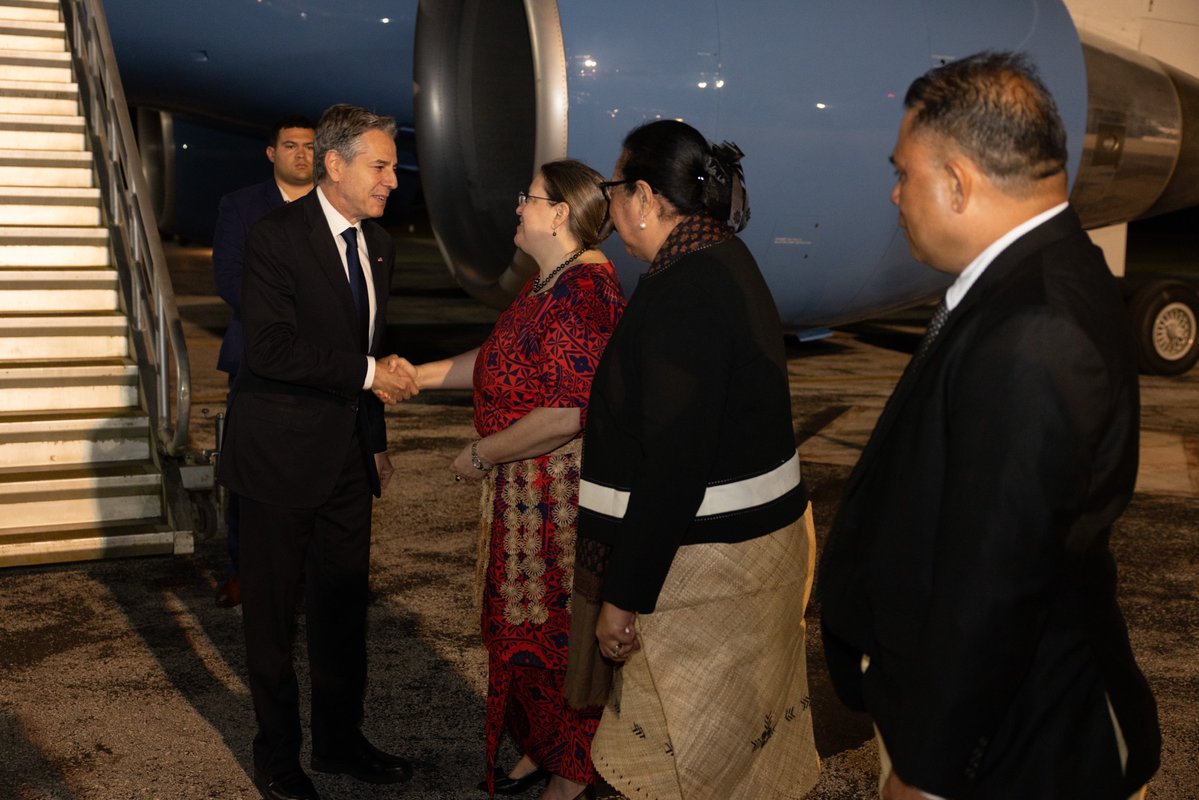U.S Secretary of State Antony Blinken touched down Wednesday in Tonga, where he will dedicate a new embassy that is part of a drive to build influence in the South Pacific.
He is the first top U.S diplomat to visit the Pacific island nation, and will later travel to New Zealand and Australia as the United States jostles with China’s growing clout in the region.
“We’re a Pacific nation” Blinken told his hosts “and we very much see the future in the Indo-Pacific region.”
The new embassy in the capital Nuku’alofa was officially opened in May, but Blinken’s hosts said his visit signalled Washington’s interest in the South Pacific.
“His presence here today is a testament to the fact that our partnership is growing from strength to strength,” said Tongan Prime Minister Hu’akavemeiliku Siaosi Sovaleni, welcoming a “shared respect for democracy, rule of law and the rights and freedoms of others””.
Blinken also attended a wreath laying ceremony in Nuku’alofa.
“I visited the Cenotaph Pangai Si’i to pay respects to the fallen servicemen who fought bravely in World Wars I and II. Tonga has contributed significantly to international peace and security. Our countries will continue working together for a more prosperous future,” Blinken said on twitter.
Tonga, a Polynesian archipelago of about 100,000 people, is the latest in a string of Pacific island states targeted in a renewed U.S diplomatic push.
The United States also has plans to open embassies in Vanuatu and Kiribati.
In February, it restored its embassy in Solomon Islands after a 30-year hiatus.
The United States has been the dominant military force in the South Pacific since World War II.
But the region is increasingly the arena for powers to compete for commercial, political and military influence.
China, the rising military power in the region, has also asserted itself through its expanding diplomatic reach, investment, police training, and security deals.
Blinken tried to stress a U.S willingness to engage on issues that matter to the Pacific Islands, including climate change, development, and illegal fishing.
“We really understand what is a priority for the people here,” he said.
“There are a long list of things that we’re working on together, but it’s all driven by focusing on what’s concrete, what can really make a difference in people’s lives,” he said.
SOURCE: AFP/PACNEWS














